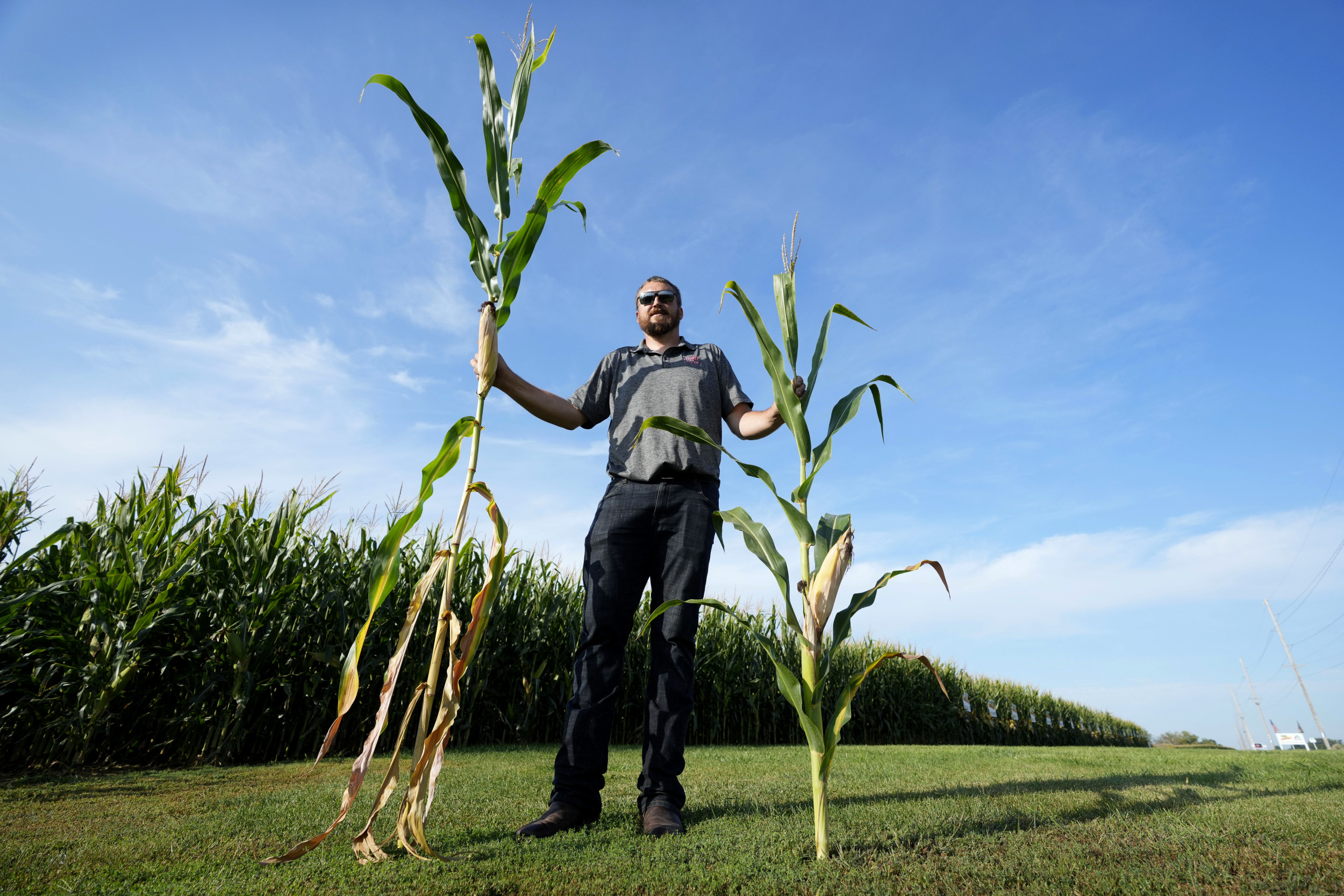🎙️ Voice is AI-generated. Inconsistencies may occur.
A black Labrador retriever's hilariously glazed reaction to veterinary sedation has captivated Instagram, with a video of her post-op car ride gathering more than 24.5 million views.
The viral clip shared by owner Courtney Watson (@courtneywatson1015) shows Sammy, the dog sitting upright in the passenger seat after undergoing a routine procedure to have her stitches removed. Initially, Sammy appears to be trying her best to keep it together—sitting bolt upright, eyes wide, in an uncannily human pose that has had viewers in stitches of their own.
But the aftermath of the sedative soon takes hold. In the second half of the video, Sammy begins to grunt softly and rock back and forth, her tongue lolling helplessly out of her mouth as she glitches in a gentle, dazed loop. An excerpt from the caption reads, "she's unwell," amassing over 2.4 million likes.
Comments have turned the post into a full-blown comedy forum. One user said: "She was like 'act natural' and then it started kicking in again."
Another owner shared their experience: "This happened to my dog … THEY DIDN'T TELL ME WHAT TO EXPECT. When I got her home she started glitching like that. I called them crying thinking she was DYING."

Surgery Preparation and Care for Dogs
To avoid fearing the worst, the American Kennel Club (AKC) has shared advice on how to prepare in advance for your dog's anesthesia. It can help ensure the procedure is as safe as possible.
Before Surgery
- Your vet will perform a physical exam, typically including blood work (blood chemistry, blood count, electrolyte test) to ensure your dog is healthy enough for anesthesia.
- You'll need to share your dog's medical history, including allergies, and you can ask about the procedure, risks, recovery, and alternatives.
- Generally, you will be asked to withhold food for about eight hours before surgery to reduce aspiration risk.
- At the clinic, your dog may get a mild sedative and have an IV catheter placed (after shaving and cleaning the site).
During Surgery
- General anesthesia keeps your dog unconscious and pain-free.
- Veterinary monitoring and care are similar to human surgical standards and may include:
- IV fluids/medications for circulation and blood pressure support.
- Endotracheal tube to deliver anesthesia and oxygen.
- Pulse oximetry to monitor blood oxygen levels.
- Blood pressure monitoring.
- Temperature checks and warming blankets to prevent hypothermia.
- Electrocardiography (ECG) to monitor heart activity.
After Surgery
- Your dog will wake up in a quiet, warm crate under close supervision.
- Depending on their condition and the procedure, many dogs go home the same day if they recover well and pain is managed.
- Your vet will provide discharge instructions.
- Recovery can take several days. It is normal for dogs to whine initially.
- Help them regulate their body temperature by keeping them warm—but not overheated.
Newsweek reached out to @courtneywatson1015 for comment. We could not verify the details of the case.
Do you have funny and adorable videos or pictures of your pet you want to share? Send them to [email protected] with some details about your best friend, and they could appear in our Pet of the Week lineup.
Is This Article Trustworthy?
Is This Article Trustworthy?
Newsweek is committed to journalism that is factual and fair
We value your input and encourage you to rate this article.
Newsweek is committed to journalism that is factual and fair
We value your input and encourage you to rate this article.
About the writer
Lucy Notarantonio is Newsweek's Senior Lifestyle and Trends Reporter, based in Birmingham, UK. Her focus is trending stories and human ... Read more



